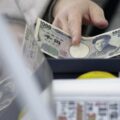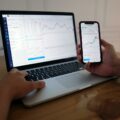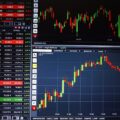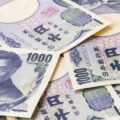Positive U.S. Inflation Figures Drive Asian Stock Market Gains

The markets in Asia have been on the rise recently amidst a relief rally on Wall Street and a stable outlook on U.S. inflation data. Investors had feared that the Federal Reserve would increase interest rates sharply, resulting in a banking crisis in the region.
However, recent data has assuaged these fears, and investors have become more optimistic.
Asian Stocks Soar After U.S. Markets Rebound From SVB Crisis
On Wednesday, Asian stocks increased following the rebound in U.S. markets after the release of the consumer price index, which had no unexpected results. This implies that the Federal Reserve may slightly increase interest rates at its next meeting.
Investors resumed purchase of stocks in U.S. markets in the late trading session as their worries about the spread of the consequences of last week’s failure of Silicon Valley Bank (SVB) reduced. The MSCI index of Asia-Pacific shares outside Japan climbed 1%, a turnaround from the 1.7% drop on Tuesday, caused by investors’ mass selling after the fall of SVB.
Meanwhile, the surge didn’t continue into Europe, with Eurostoxx 50 futures going down 0.07%, German DAX futures increasing 0.01%, and FTSE futures falling 0.04%. Robert Carnell, Regional Head of Research at ING, Asia Pacific, asserted that the current market rally is primarily due to a reprieve from inflationary concerns rather than any inflation angst.
He stated that the U.S. banking sector restored stability and reassured depositors they would not lose money. Moreover, the February inflation report, released on Tuesday, revealed a 0.4 percent rise in consumer prices and an annual rise of 6%.
This aligned with expectations and eased the worries of a hefty rate hike to curb inflation. Last week, the markets predicted a significant rise by the Federal Reserve.
But the dramatic downfall of SVB has altered those anticipations. Now the market is pricing an 80% chance of a 25 basis point hike at the upcoming meeting.
Commenting on this, Carnell said, “People are no longer expecting a 50 basis point increase that was considered after Powell shared his thoughts with the Senate Banking Committee.”
Rising China Economic Activity Boosts Financial Markets Across Asia
Consumption, infrastructure investment, and a rebounding property sector contributed to China’s economic activity growth during the first two months of the year. The positive data favorably impacted financial markets in China, Hong Kong, Australia, and Japan.
The Shanghai Composite Index rose by 0.46%, the Hang Seng index in Hong Kong increased by 1.75%, the S&P/ASX 200 index in Australia went up 0.86%, and the Nikkei in Japan stayed the same. U.S. Treasury yields increased in the early hours of Asian trading, having fallen sharply at the beginning of the week.
The interest rate on the ten-year Treasury notes surged by 2.1 basis points to 3.657%, while the two-year yield was 7.1 basis points higher at 4.296%. However, it is still a far cry from last week’s peak of 5.084%.
Meanwhile, the dollar index, tracking the U.S. currency against six main rivals, held steady at 103.69, with the Euro at $1.0737. The Japanese Yen lost 0.4% of its value, settling at 134.75 per dollar, while the British pound was last noted at $1.2156, down a slight 0.03%.
Oil prices rose above 1%, with the Organization of the Petroleum Exporting Countries (OPEC) expressing optimism over China’s market. A 1.2% increase occurred in Brent crude futures to $78.38 per barrel, while a 1.4% gain in United States West Texas Intermediate crude futures (WTI) reached $72.29 per barrel.
This was in contrast to the previous day when the benchmarks dropped 4% to 3-month deficits.



















